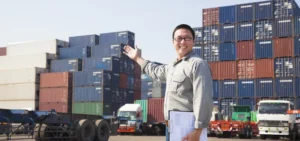
Unveiling the Dynamics of 3PL in Indonesia: Navigating Logistics with Precision
Indonesia, with its archipelagic expanse and growing economy, stands as a key player in the Southeast Asian logistics landscape. Within this dynamic environment, Third-Party Logistics (3PL) has emerged as a critical enabler for businesses, facilitating the seamless movement of goods and optimizing supply chain operations. This comprehensive blog aims to unravel the intricacies of 3PL logistics in Indonesia, highlighting its importance, utilization, and impact on the nation’s commerce.
Contextualizing the Landscape: Explore the economic and geographic context that shapes Indonesia’s logistics industry. Analyze the role of the archipelagic nature of the country and the associated challenges and opportunities it presents for 3PL providers.
Importance of 3PL in Indonesia: Break down the significance of 3PL services in the Indonesian business ecosystem. Discuss how outsourcing logistics functions to specialized providers allows companies to enhance efficiency, reduce costs, and focus on their core competencies.
Diverse Range of Services: Provide an overview of the varied services offered by 3PL providers in Indonesia. This may include transportation, warehousing, freight forwarding, customs clearance, order fulfillment, and value-added services, showcasing the versatility of the 3PL model.
Key Players and Market Dynamics: Identify and profile major 3PL players operating in Indonesia. Examine market dynamics, including competition, consolidation, and collaboration between local and international players, reflecting the industry’s adaptability.
E-commerce Boom and 3PL Integration: Explore the symbiotic relationship between the rapid growth of e-commerce in Indonesia and the utilization of 3PL services. Discuss how 3PL providers are essential in managing the complexities of the e-commerce supply chain, including last-mile delivery and order fulfillment.
Technological Integration: Investigate how technology is reshaping 3PL logistics in Indonesia. Highlight the adoption of digital platforms, IoT, data analytics, and automation to optimize processes, improve visibility, and meet the evolving demands of businesses and consumers.
Regulatory Framework: Examine the regulatory environment governing logistics in Indonesia. Discuss compliance requirements and how adherence to standards contributes to the sustainability and reliability of 3PL services.
Challenges and Opportunities: Assess the challenges faced by 3PL providers in Indonesia, such as infrastructure limitations, regulatory complexities, and talent acquisition. Identify opportunities for growth, innovation, and expanding service offerings.
Social and Environmental Considerations: Explore how 3PL providers in Indonesia are addressing social and environmental responsibilities. Discuss sustainable logistics practices, community engagement, and the role of 3PL in contributing to the broader goals of corporate social responsibility.
Future Trajectory: Provide insights into the future trajectory of 3PL logistics in Indonesia. Consider emerging trends, potential disruptions, and the industry’s preparedness to adapt to evolving business landscapes.
Conclusion
In conclusion, 3PL is indispensable for navigating Indonesia’s diverse geography and expanding economy. The adoption of Third-Party Logistics services is a strategic imperative for businesses aiming to thrive in the dynamic Southeast Asian market. As Indonesia strives to become a regional logistics hub, the role of 3PL is pivotal for efficient supply chain management. Innovations like Transportation Management Systems (TMS), exemplified by companies such as Informa, Datascrip, and APL utilizing Zyllem, showcase the transformative impact of technology in overcoming the unique challenges of Indonesia’s logistics landscape. The success stories of these industry leaders underscore the essential synergy between 3PL and TMS, charting a path toward enhanced operational efficiency and contributing to Indonesia’s economic growth in the evolving global logistics arena.





